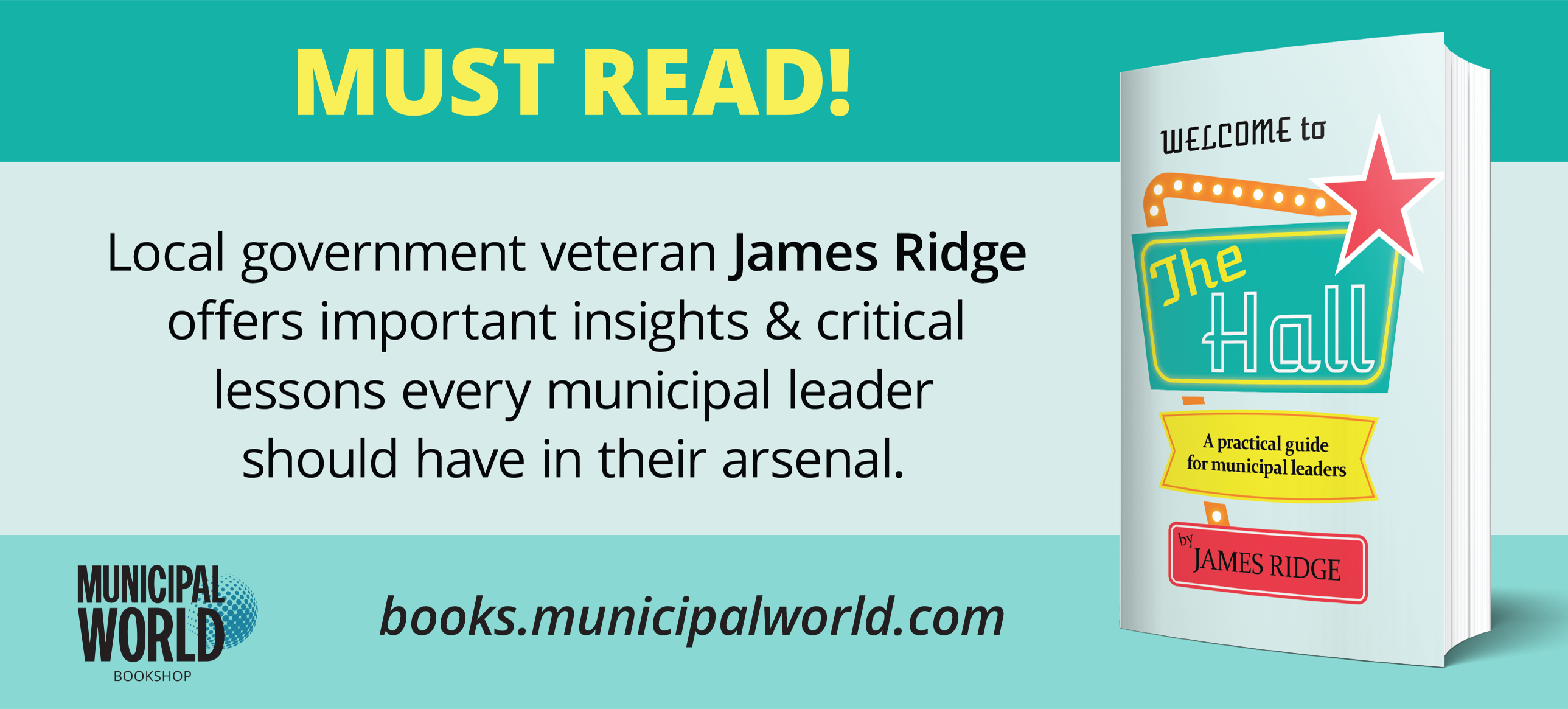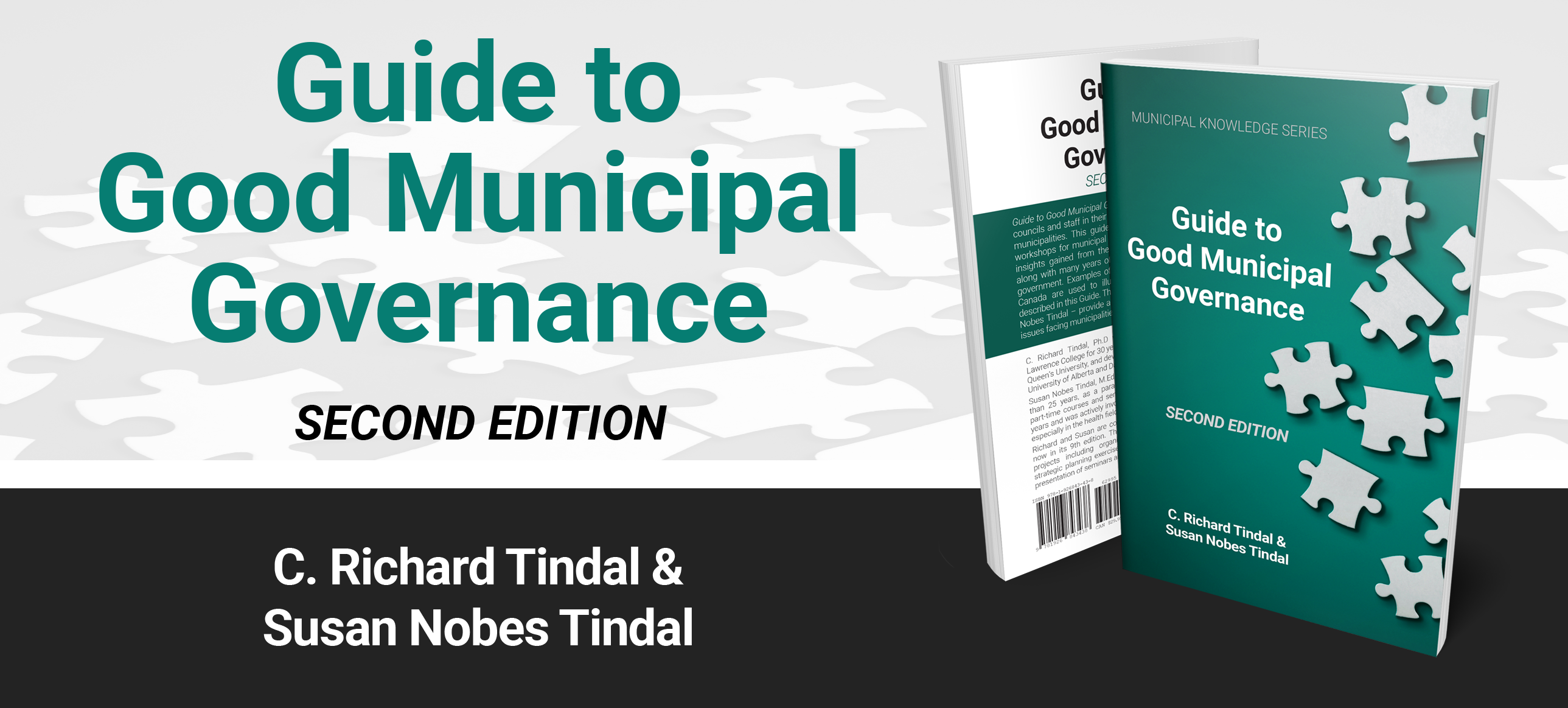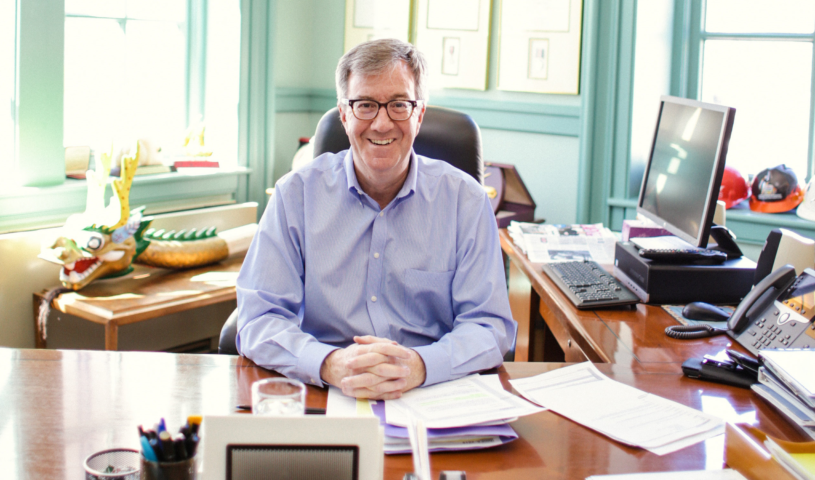Getting things done

Four tips to achieve action-oriented local leadership
The year was 1988. There was a large invitational tournament taking place in Kitchener, Ontario with wrestlers from high schools across the United States and Canada. I was on deck. My opponent was from a Michigan prep school and in his matching red, white, and blue singlet, track pants, and jacket, he looked intimidating. My coach had warned me about this guy: a senior with many years of wrestling experience and a reputation for being overly aggressive.
As I removed my faded grey cotton sweats, I glanced over at “Michigan.” He was getting hyped up. Slapping himself repeatedly – his face, his arms, his legs – hopping up and down. As we both made our way to the centre of the ring for our pre-match chat with the referee, Michigan started with the trash talk. He told me in no uncertain terms what he was going to do to me and how fast it was going to happen. I said nothing.
We faced each other in the centre of the ring. Michigan slapped himself a few more times for good measure and threw out a few more taunts. The referee shouted “wrestle!” I hit him hard and fast with a double leg takedown. I threw him to the mat and pinned him within 20 seconds. It was over. I said nothing. We shook hands.
I learned a lesson that day that has stuck with me ever since: what you do is so much more important than what you say.
1. Leave the Cheap Talk Behind
Let’s shift gears to local politics and government. The cheap talk escalates every four years as politicians scramble to say all the right things to get elected. They tell voters what they want to hear. They will cut the fat, lower taxes, freeze hiring, stop growth, get rid of high-priced consultants, fix all the roads, and save the environment. Every four years it is the same story.
2022 is another municipal election year in Ontario, and our cities and towns need to be rebuilt from the devastating impacts of COVID-19 and the on-again, off-again lockdowns and restrictions. More than ever, we need good leaders who are motivated by results. Empty promises, speeches, media-friendly sound bites, and political gestures are not good enough. Local leaders need to take real action to make life measurably better for their residents and businesses.
2. Make Political Promises You Can Keep
If you decide to put your hat in the ring and run for your local council, try something new and refreshing. Decide against being a typical politician. Have the courage to avoid making promises you cannot keep. This is simple, but it is not easy. Our default behaviour is to tell people what we know they want to hear – especially when your political opponent is doing it.
For example, in the 2018 Ontario municipal election, urban sprawl and population growth were hot-button items for many small towns near the Greater Toronto Area. People were fearful that growth in their communities would result in their “small town feel” being lost. Many wanted to hear their mayoral candidates promise to stop growth. However, council has no power to stop growth. Council decisions to reject compliant development applications would simply be appealed and overturned by the Local Planning Appeal Tribunal – all at significant cost to the taxpayer. While one Township of Centre Wellington candidate promised to “just say no to growth,” the winning candidate committed to creating a new citizen-led Healthy Growth Task Force to identify real actions over the next four years to protect the Centre Wellington’s unique “small town” characteristics.
When you campaign, only tell people what you will do if elected, and be prepared to do those things. If you are not sure you can deliver, don’t make the promise. It’s called integrity.
3. Pursue Truths and Expose Falsehoods
Mark Twain said “Never let the truth get in the way of a good story.” That is the mantra of the world that we live in. Social media has provided a vehicle for anyone to share their opinion about anything. This has never been more obvious than during the current COVID-19 pandemic. Rushing to opinions and solutions based on unverified assumptions has crept into local politics and government. The result has been ineffective, combative council debate leading to knee-jerk, reactive decisions. And the media is right there to showcase these nasty interactions and hasty solutions.
To be effective in getting things done, good local leaders need to be different. Maturity and composure are required to ignore all the external noise (typically generated by social media). It is critical that local leaders begin every decision-making process by asking the right question: What do we know to be true? The only way to achieve lasting, positive results for your community is to begin with the facts – regardless of how unpopular they are. Ineffective conversations and decisions flow from false assumptions.
Good local leaders must be diligent in pursuing truth and exposing falsehoods. This provides the foundation for positive action that flows from carefully considered options.
4. Don’t Hide Behind Political Gestures
Political gestures often masquerade as action. In a quest to establish “progressive” reputations, many local leaders get caught in a cycle of issuing proclamations, passing resolutions, writing press releases, issuing statements, and pursuing certifications. There is nothing inherently wrong with these things. The causes that trigger these political gestures are often quite important. The problem is when local leaders think they have “acted” on something just because they have moved forward with a political gesture. These gestures are easy, and, for this reason, many politicians love them.
Local councils often find themselves stuck for years on the political gesture treadmill. They produce motions, statements, proclamations, resolutions, etc. about one issue after another, regardless of whether these items fall under their municipal act roles and responsibilities. These gestures are extremely time-consuming for councils and staff, and rarely result in making life measurably better for residents and businesses. At best, they are a starting point.
For example, a proclamation that eloquently states that “every person has a right to a healthy environment” is a political gesture. It generates awareness for an important issue, but it is only a starting point. Passing a proclamation is not real action. On the other hand, investing hundreds of thousands of dollars to implement a curb-side green bin organics program that uses environmentally friendly natural gas trucks is an example of real action. The County of Wellington, for example, introduced a green bin organics program to its existing curb-side collection program in July 2020. It requires extensive policy/program development, operational/logistical design, procurement expertise, ongoing performance measurement, contract management, customer service activities, and ongoing program/operations modifications. It is hard work, and it will result in a measurable contribution to environmental excellence in your community.
Good local leaders understand they must go beyond words and political gestures to do the hard work that results in effective local government.
Example: Municipal Infrastructure Renewal
Distinguishing political gestures from real action is critical in municipal infrastructure as well. Frustrated with their growing infrastructure deficit, many local leaders spend all their time and energy lobbying for financial support from other orders of government. While this is necessary from time to time, it is also only a starting point.
With 444 municipalities across Ontario all in the same situation, the chances are slim that your lobbying efforts will address your crumbling infrastructure. Local leaders need to determine what actions they can take within their own sphere of influence to tackle their own local challenges. For example, have you considered introducing a temporary capital levy dedicated to rebuilding high-priority infrastructure assets? Centre Wellington, for example, introduced a two percent Bridge Rebuilding Capital Levy in 2015 (https://www.youtube.com/watch?v=Owlzy64ifAI). While a capital levy may not be the right solution for all municipalities, taking responsibility to address your own local issues is the first step to achieving real results.
Blaming the Province of Ontario for not solving your infrastructure deficit will score you some political points. It is an easy political gesture. Taking deliberate action to do what is required to address your own local issues takes real work and political courage, but that is what is necessary to see real results.
Call to Action
As a local leader, you are constantly under pressure to say the right things. Community activists and advocacy groups will want your opinion about everything – regardless of whether it is within your sphere of influence. Many will want to label you and stick you neatly into a simple political category. This makes it more convenient for them to agree or disagree with you. You can either lose sleep over this, or you can choose another way.
Just like my 1988 wrestling experience taught me, what you do matters more than what you say. It is refreshingly simple:
- do not trash talk your opponents;
- promise only what you can deliver;
- uncover the truth; and
- go beyond political gestures.
It is critical that you focus your time, skills, and energy on getting good things done for the hard-working taxpayers who elected you. And when your four-year council term is over, the only question you should feel compelled to answer is “What have you done within your sphere of authority to make life better for your residents and businesses?”
✯ Municipal World Insider and Executive Members: You might also be interested in Christina Benty’s article: Courage, honesty, and the infrastructure deficit.
Kelly Linton is the warden of the County of Wellington (2018-2022) and mayor of the Township of Wellington County (2014-2022). Kelly is also a Founding Partner of Imaginate Inc. with over two decades of management consulting experience within the public sector, primarily at the municipal level.
Related resource materials:



